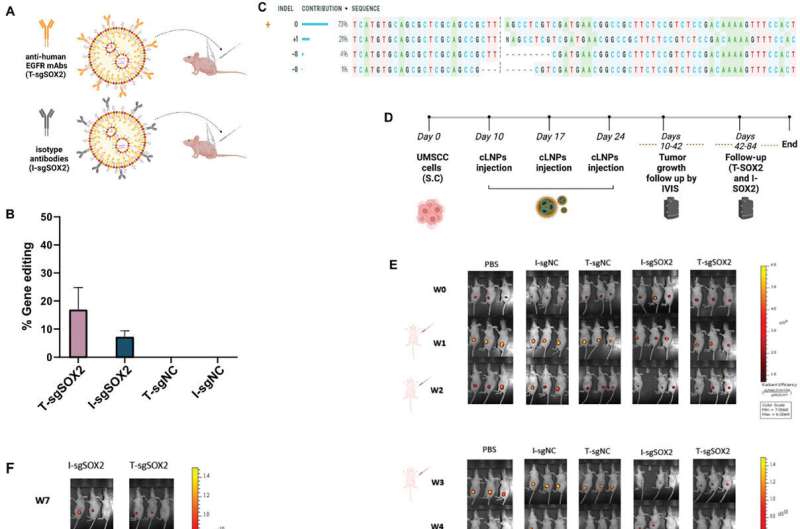The research team says, “Until now, CRISPR wasn’t used for cancer because it was assumed that knocking out a single gene wouldn’t topple the whole structure. We demonstrate that some genes are absolutely essential for cancer cell survival, making them excellent targets for CRISPR therapy.”
“Head and neck cancers are very common, ranking fifth in cancer mortality,” says Prof. Peer. “These are localized cancers, typically starting in the tongue, throat, or neck, which can later metastasize. If detected early, localized treatment can effectively target the tumor. Our aim was to use genetic editing of a single gene expressed in this type of cancer to collapse the entire pyramid of the cancerous cell. This gene is the cancer-specific SOX2, also expressed in other types of cancer, and overexpressed in these particular tumors.”
Prof. Peer and his colleagues are global pioneers in developing mRNA-based drugs encased in synthetic lipid particles that mimic biological membranes. In this study, the researchers synthesized special lipids that encapsulate the delivered CRISPR system in an RNA format. An antibody targeting a receptor against a protein named EGF was attached to the surface of these particles.

